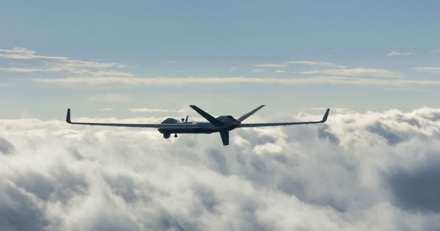SAN DIEGO – 24 July 2023 – General Atomics Aeronautical Systems, Inc. (GA-ASI) congratulates the U.S. Marine Corps (USMC) on achieving a significant milestone of surpassing 20,000 flight hours with their Marine Air-Ground Task Force (MAGTF) Unmanned Expeditionary (MUX) Medium-Altitude, High-Endurance (MALE) MQ-9A Unmanned Aircraft System (UAS).

To date, GA-ASI has delivered eight MQ-9A UAS to the USMC. Two of these MQ-9A aircraft are actively engaged in operational missions, playing a vital role in supporting mission-critical Marine Corps objectives. The USMC awaits delivery of 12 additional aircraft, which will fulfill their goal of three squadrons by 2025.
“This strategic acquisition of MQ-9As underscores the USMC’s commitment to strengthening their aerial surveillance capabilities and demonstrates their confidence in GA-ASI’s expertise in delivering top-tier UAS,” said GA-ASI President David R. Alexander.
Renowned for its fault-tolerant flight control system and triple-redundant avionics system architecture, the MQ-9A UAS embodies the industry’s highest standards of reliability and performance, surpassing those of many manned aircraft.
The USMC fleet will ultimately be entirely composed of the MQ-9A Extended Range (ER) configuration, enhanced with wing-borne fuel pods and reinforced landing gear. This model has been specifically designed to extend its endurance to more than 30 hours, enabling persistent long-endurance surveillance capabilities. Equipped with Full-Motion Video and both a Synthetic Aperture Radar and a Moving Target Indicator/Maritime Mode Radar, this advanced system provides the USMC with a comprehensive real-time situational awareness picture.
The USMC’s 20,000 flight hours with MQ-9A represent an impressive accomplishment in the field of unmanned aviation. GA-ASI is honored to have played a role in this achievement and looks forward to continuing its collaboration with the USMC to further advance the capabilities of unmanned systems and support their growing UAS squadrons.

